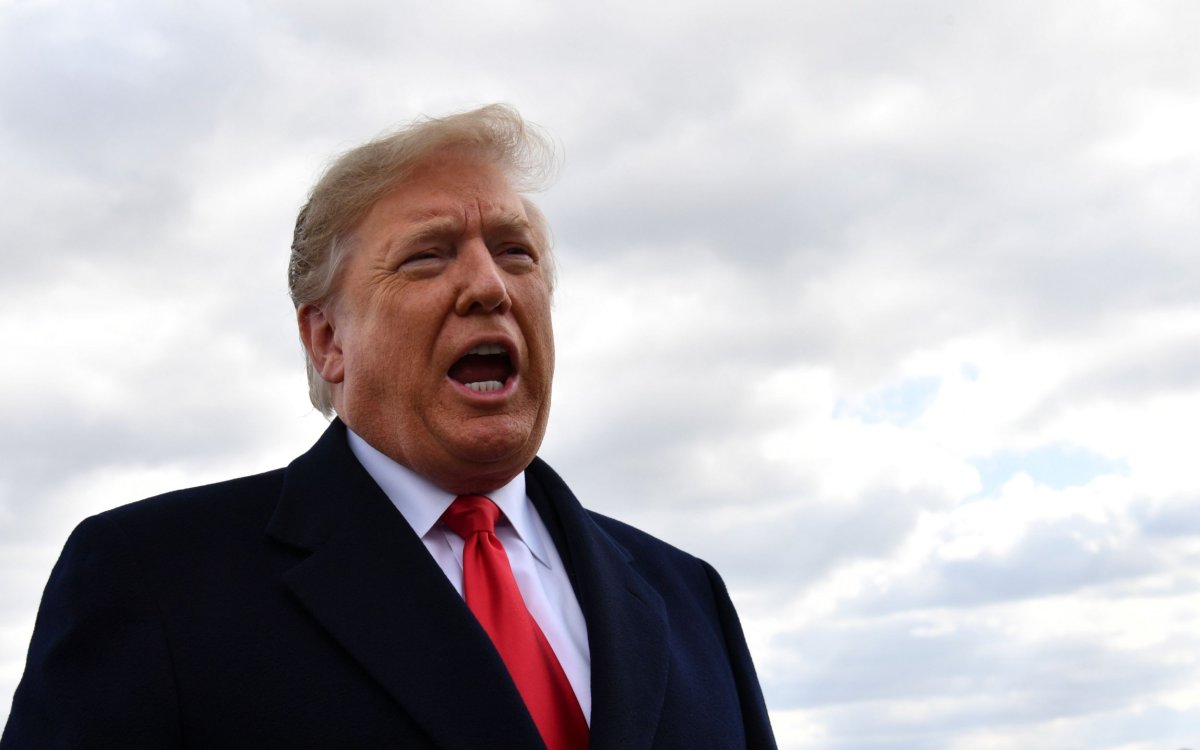In ordinary times, a presidential proposal that stands no chance of surviving review, even by the judges and justices the president has appointed, wouldn't matter much. But these aren't ordinary times, and this president's trial balloons are anything but harmless, even when we can confidently predict they won't float.
A perfect case in point is President Donald J. Trump's threat to end birthright citizenship, a threat that sends chills down the spines of millions of lawful residents who understandably fear that they, or their children or grandchildren, may be cast into a stateless limbo, and become citizens of nowhere. As Gareth Epps points out, the president's reckless suggestion would "create a shadow population of American-born people who have no state, no legal protection, and no real rights that the government is bound to respect." Indeed, the very announcement of his plan, and the drumbeat of its endless repetition in the echo chamber all of us occupy today, shakes the foundations of people's lives in a way that any decent president would have avoided.
Instead, President Donald J. Trump has trumpeted a flatly unconstitutional plan to end birthright citizenship "one way or the other," in an obvious bid to slake the thirst for blood that characterizes what he views as his most reliable base of support. Why "one way or the other"? Clearly, that's meant to placate those members of an otherwise supine GOP-controlled Congress who responded to Trump's original plan to achieve his aim by executive order by reminding him that it's Congress, not the Executive Branch, that possesses the power to regulate citizenship.
But the lawless character of what Trump says he'll somehow accomplish cuts too deep to be cured, even by bringing a craven Congress on board. To fulfill his evil promise, he'd have to erase the opening words of the most fundamental change to our Constitution since the founding: "All persons born or naturalized in the United States, and subject to the jurisdiction thereof, are citizens of the United States."
Claims that Trump's plan would restore the "original meaning" of that unambiguous language should fool nobody. Every "originalist" interpreter of the Constitution—like every "living constitutionalist"—treats the document's actual text as decisive when, as in this instance, the text itself plainly answers the question at hand. All but conceding this universally acknowledged point, Trump and Vice President Michael R. Pence have tried to twist the amendment's own words to say that "illegal immigrants are not subject to the jurisdiction of the United States" and thus are excluded from the Amendment's definition of birthright citizenship.
As George Conway, a distinguished conservative lawyer married to Trump Senior Counselor Kellyanne Conway, put it recently, that's "just drivel." If it were true, "the government wouldn't be able to arrest them. Surely that's not the President's position. Clearly he has no comprehension of the words he's using." Harsh, perhaps, but undeniably correct.
Anyone who knows how to use the English language has to see that the phrase "and subject to the jurisdiction thereof" qualifies not the parents of persons "born...in the United States," but the persons born here, who automatically become American citizens upon birth on U.S. soil, whatever the legality of their parents' presence in America, or of anything their parents, or their parents in turn, may have done.
The president's suggestion that the Supreme Court—now that Brett Kavanaugh is a Justice—would agree with his ungrammatical and ahistorical "reading" of the text must strike all nine Justices, especially the pair he nominated, as a challenge both to their constitutional oaths and to their ability to read.
Even more fundamentally, the rule of birthright citizenship, as the former head of the Office of Legal Counsel Walter J. Dellinger has rightly noted, "is not simply some loophole needing to be closed...or an 'absurd policy' as Sen. Lindsey O. Graham (R-S.C.) said on Twitter. It is a fundamental part of who we are as a people." From well before the U.S. Constitution became law, "all those...born on [our] soil and governed under the flag were considered citizens. The simple fact of birth here...was what mattered."

It was the Supreme Court's infamous 1857 decision in Dred Scott v. Sandford that first carved an immoral exception to that bedrock principle by holding that African-American slaves and their descendants, even if born here, could never become citizens. It required a catastrophic civil war to undo that abominable ruling, and it was the first sentence of the Fourteenth Amendment that enshrined in our law the rule that Trump would have us believe can be undone without amending our founding document.
Never mind that the Supreme Court has repeatedly concluded that the Fourteenth Amendment means exactly what it says about American citizenship, whatever ambiguities its other clauses might contain. The fact that the blight of slavery motivated the amendment's opening line obviously cannot mean that the words of the amendment apply only to the descendants of African-American slaves. Even someone as ignorant as the incumbent president must understand that.
Happily, Trump's ugly proposal will never become part of American law. Unhappily, his willingness to push it as though it had a chance to survive demonstrates, yet again, how little he cares about the Constitution, and how willing he is to strike fear into the hearts of millions of Americans and their families if he thinks it might yield him and his cronies some political advantage.
Laurence H. Tribe, Carl M. Loeb University Professor and Professor of Constitutional Law at Harvard Law School and co-author, most recently, of "To End a Presidency: The Power of Impeachment." Follow on Twitter at @tribelaw.
The views expressed in this article are the author's own.
Uncommon Knowledge
Newsweek is committed to challenging conventional wisdom and finding connections in the search for common ground.
Newsweek is committed to challenging conventional wisdom and finding connections in the search for common ground.
About the writer
To read how Newsweek uses AI as a newsroom tool, Click here.








